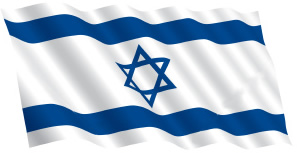Of Pain and Pride: Hard Lessons from Israel’s No-Medal Olympics
No Israeli came home with a medal in the 2012 Summer Olympics in London. Thirty-seven Israeli athletes competed in eight sports. Two athletes came in sixth place, but alas, no medals.
For Jews and Israelis around the world, however, this Summer Olympics was overshadowed by the campaign to convince the IOC to hold a moment of silence for the 11 Israeli athletes killed by Palestinian terrorists at the 1972 Munich games. The campaign consumed the media in advance of the games and even caught the attention of world leaders, including U.S. President Barack Obama.
In the end, while several separate services were held in their memory, the IOC chose not to hold a moment of silence during the main opening or closing ceremonies. They felt it was not an appropriate forum for a moment of silence. “Shame on you, IOC,” said Ankie Spitzer, who was married to fencing coach Andre Spitzer who was killed in Munich. “You have forsaken the 11 members of your Olympic family. You are against them only because they are Israelis and Jews.”
While it would have been nice for the IOC to hold that moment of silence—and it would have been very meaningful—I can’t help but listen to a little voice in the back of my mind. What if, instead of complaining, Israel had actually won a few medals this year? What if the world saw not a sore loser, but a brave winner? What if Israel could have proven to the world that it’s in the game and a key player on the world stage?
Imagine hearing Hatikva while the Star of David flag rose up before the podium. Imagine the great PR opportunities for Israel with its athletes in the spotlight. Imagine the voice Israel could have in the IOC if it competed at the highest levels of athleticism. Imagine Israel’s top athletes publicly displaying the Olympic spirit, like the incredible moment when Kirani James of Grenada exchanged bibs with double-amputee competitor Oscar Pistorius of South Africa. Imagine Israel’s gold medalist telling the press that her win was in honor of the Munich 11 (See Jewish American gymnast Aly Raisman’s tribute). Imagine then the incredible impression Israel could have given the world.
In my opinion, Israel should resolve today to support athletics like never before. If Israel really set its mind to it, it could have a good number of Summer Olympic medalists in the next four, eight or twelve years. Israel could generously fund athletes who train overseas and later bring back their expertise to train younger athletes in Israel. New athletic centers could be built and more kids and parents could be encouraged to participate. Whole communities could get involved and attend competitions. Israel could reach out to top coaches around the world and offer them jobs in Israel.
With stronger athletes, Israel could compete at the highest levels and make a name for itself. Not as a victim, not as a bitter widow, but as a triumphant nation born to greatness.
Imagine the pride then.
I don’t really think Israel should put tremendous amounts of effort into training athletes. Besides the fact that we have more pressing things to fund (like the IDF)Israel’s strength has always been in its intellectuals. While it would be nice to win some competitions in the Olympics, ultimately the Olympics are just a show of physical strength and have nothing to do with what makes am yisrael special and unique.